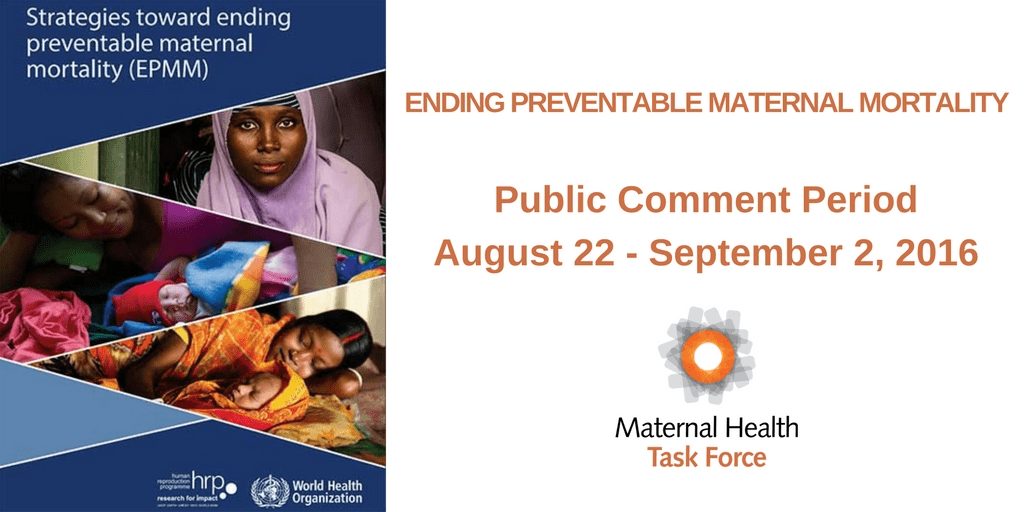Maternal Health Task Force
The Maternal Health Task Force strives to create a strong, well-informed and collaborative community of individuals focused on ending preventable maternal mortality and morbidity worldwide.
677 Huntington Avenue
Boston, MA 02115
Blog
-
Global Leaders in Maternal Newborn Health: Maria Fernandez Elorriaga (Mexico)
Safe Mothers and Newborns Leadership Workshop participant Maria Fernandez Elorriaga is the principal investigator and technical coordinator of a study investigating the use of the World Health Organization Safe Childbirth Checklist to improve the quality of institutional delivery in Mexico. Maria is also co-investigator on two more studies of implementation science in maternal and perinatal care. In addition, Maria has worked as a primary and community care nurse in Spain, as a regional nutrition coordinator in Malawi and as child health and nutrition coordinator in the Sahrawi refugee camps in Tindouf, Algeria. Maria discusses challenges in maternal newborn health in Mexico and effective leadership…read more
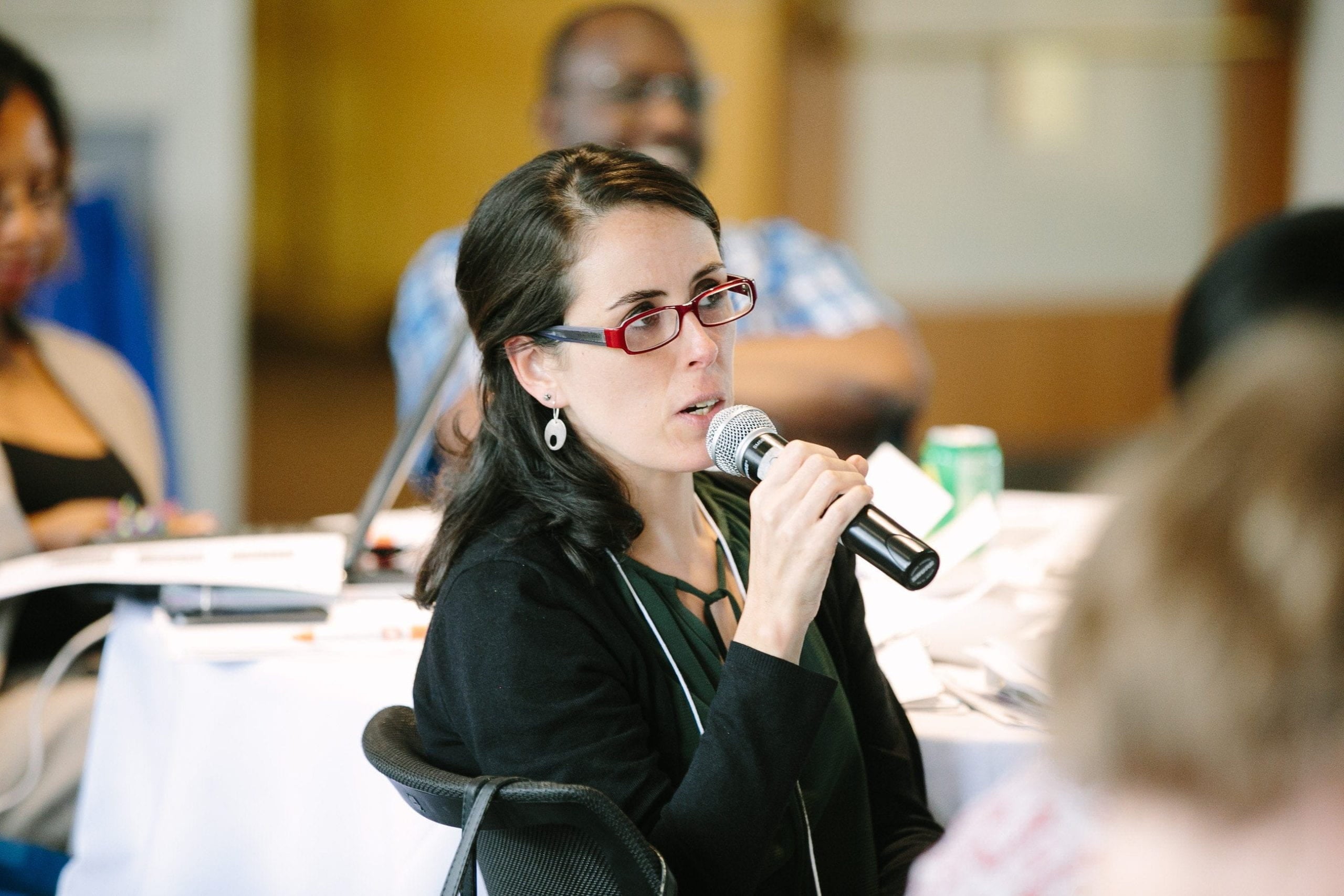
-
20 New Jobs in Maternal Newborn Health!
Interested in a position in maternal newborn health? Every month, the Maternal Health Task Force rounds up job and internship postings from around the globe…read more
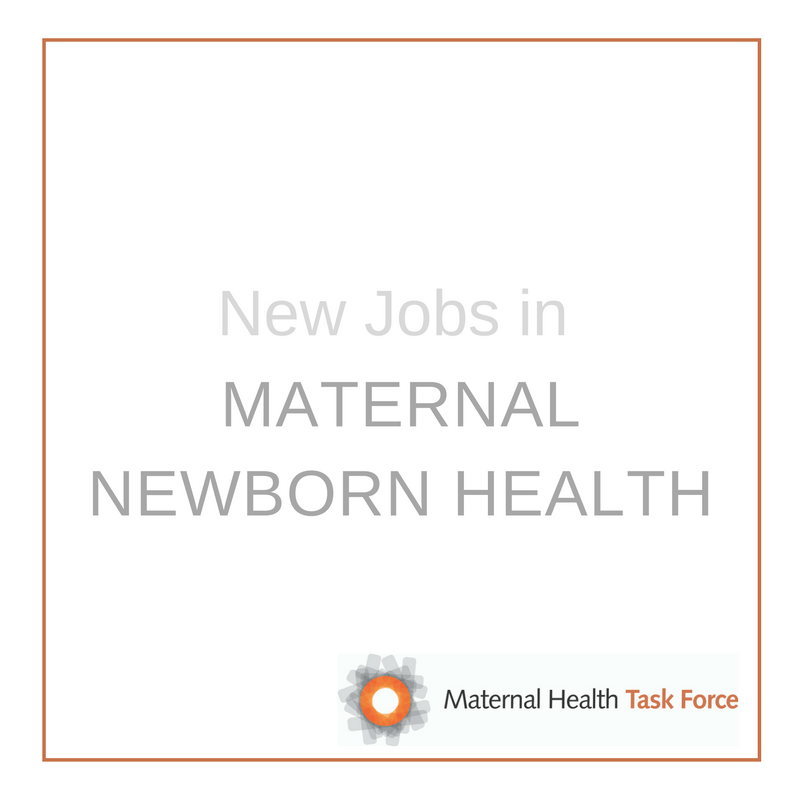
-
Best Practices for Implementing the WHO Safe Childbirth Checklist: Engaging Staff and Stakeholders
Last month, scientists at Ariadne Labs, a collaboration between Brigham and Women’s Hospital and the Harvard T.H. Chan School of Public Health, hosted the second webinar in their interactive series dedicated to sharing lessons learned from implementing the World Health Organization (WHO) Safe Childbirth Checklist for quality improvement. Presenters explored how to ensure buy-in and identify relevant stakeholders, establish an implementation team and utilize best practices in checklist adaptation. Dr. Rosemary Ogu shared her team’s experience piloting a program using the checklist in Port Harcourt, Nigeria…read more

-
Effective Antenatal Interventions to Prevent Maternal and Newborn Mortality
A recent study published in PLOS One reviews the current state of evidence on a number of antenatal interventions designed to reduce adverse maternal and newborn health outcomes. The authors analyze 21 types of interventions that fall into three categories: nutrition, infection and obstetrical/other…read more
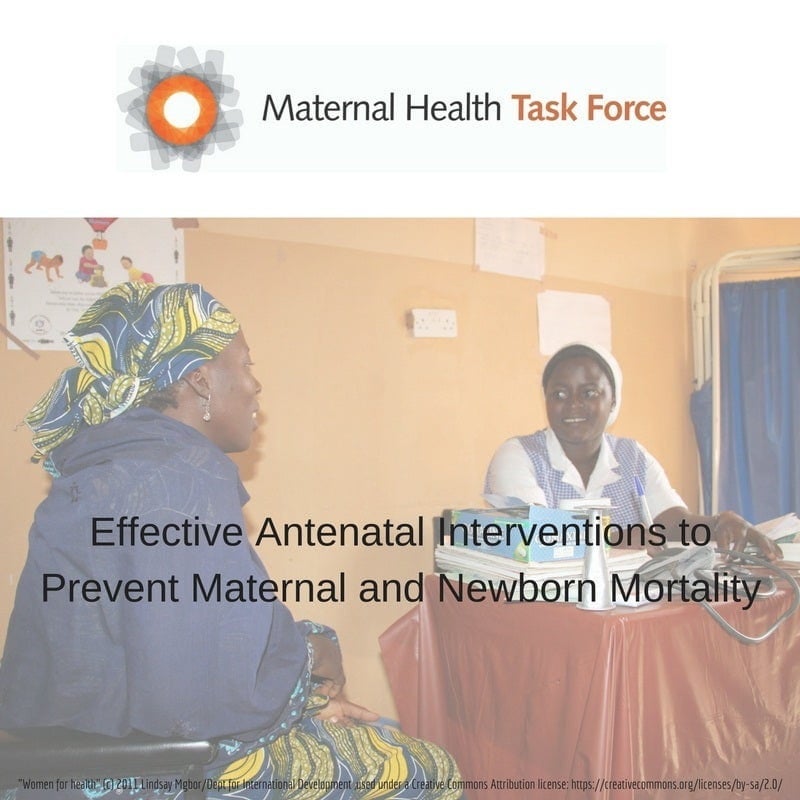
-
Improving Quality of Care for Mothers and Newborns in Health Facilities: New Standards and Measures From the World Health Organization (WHO)
To combat preventable perinatal morbidity and mortality, the World Health Organization (WHO) recently published a framework for measuring and improving quality of maternal and newborn health care in facilities across the globe. The framework includes eight standards of high quality care and a comprehensive list of measures to identify quality gaps throughout the continuum of care for women and newborns…read more
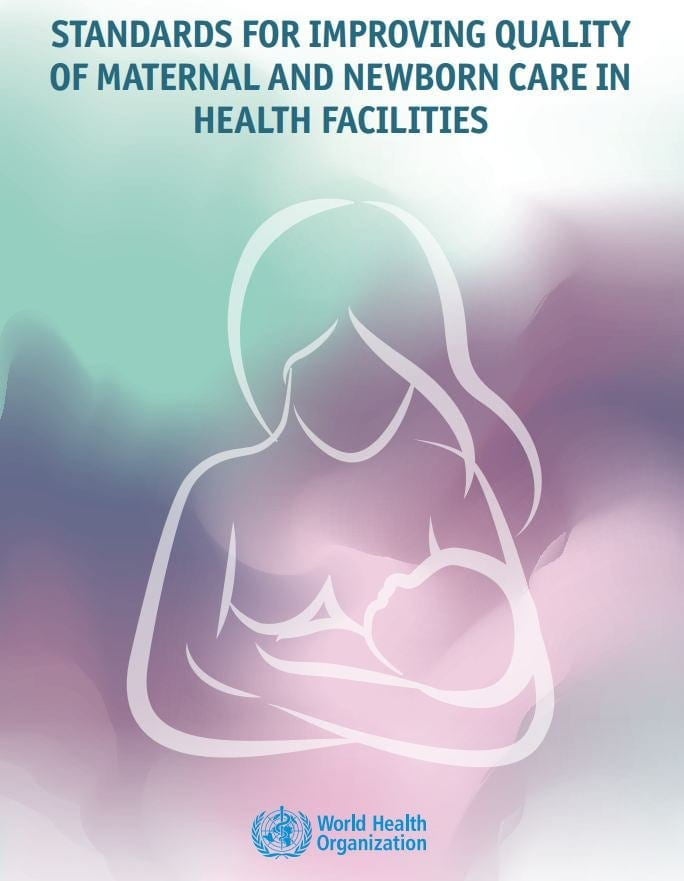
-
Global Leaders in Maternal and Newborn Health: Patrick Mwesigye (Uganda)
SMNLW participant Patrick Mwesigye is from Kampala, Uganda. He is the Founder/CEO of the Uganda Youth and Adolescents Health Forum, a community-based organization that aims to empower young women and support youth engagement. He is also the Vice President of the Africa Youth and Adolescents Network on Population and Development and the Chair of the PMNCH advisory group for the adolescent health knowledge summary…read more

-
A Call to Action to Address Iatrogenic Fistula
The majority of discussion, research and interventions related to genital fistula have focused on obstetric fistula, an abnormal opening in the upper or lower female genital tract which leads to uncontrollable, constant leakage of urine and/or feces caused by inadequate medical intervention during prolonged or obstructed labor. Significantly less attention, however, has been paid to iatrogenic fistula, a similar condition that results from surgical error, often during cesarean section. Given that a growing number of genital fistula cases in low-income countries derive from iatrogenic causes, the fistula dialogue must expand to incorporate its many root causes. To this end, the Fistula Care Plus project at EngenderHealth recently hosted a webinar to review available data, recognize data gaps, identify definition challenges, share successes and discuss next steps in addressing iatrogenic fistula…read more
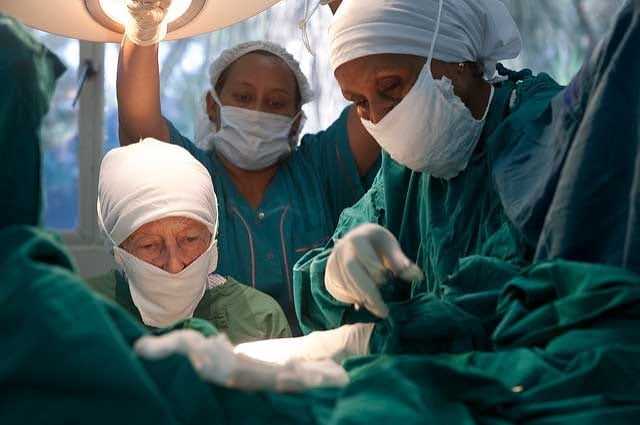
-
Pre-eclampsia Education for All Moms: Strategies for Improving Pregnancy Outcomes
Research strongly suggests that maternal deaths due to pre-eclampsia/eclampsia are almost entirely preventable with timely and effective care, including the administration of antihypertensive medications to control blood pressure, magnesium sulfate to prevent eclampsia (seizures), and eventual delivery of the newborn. However, a patient’s lack of understanding of the signs and symptoms of the disease can impact her likelihood of seeking timely care. Recent research from the analysis of state-level maternal mortality by the California Maternal Quality Care Collaborative emphasizes that patient understanding of symptoms and the severity of the disease is crucial for improving outcomes and preventing maternal death…read more

-
Implementing Checklists for Quality Improvement: Webinar on August 26!
Join the Ariadne Labs team for the second webinar in their interactive webinar series dedicated to sharing lessons learned in checklist implementation for quality improvement. This webinar will explore the first step of the Implementation Pathway, ‘Engage’, and lessons learned in effectively preparing to implement. It will also feature Dr. Rosemary Ogu’s experience implementing the World Health Organization (WHO) Safe Childbirth Checklist in Port Harcourt, Nigeria…read more
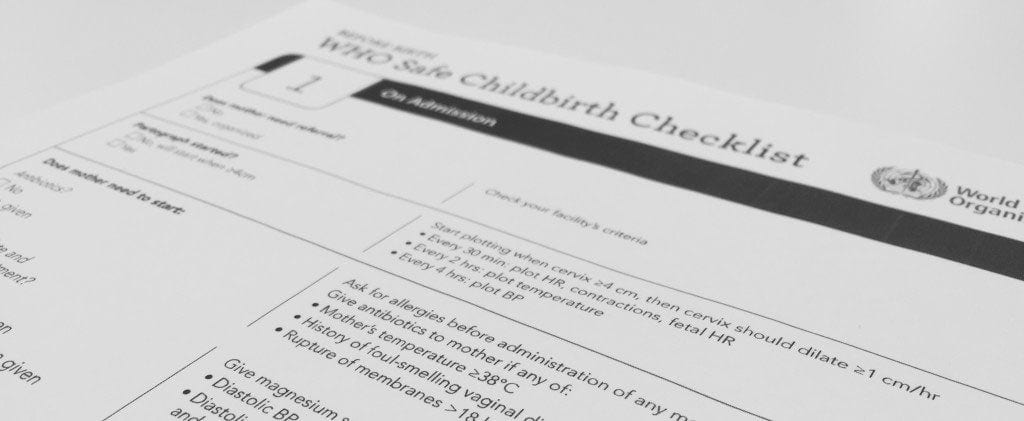
-
Calling All Technical Experts in Maternal Newborn Health Measurement: Two Ways to Get Involved
On behalf of the Ending Preventable Maternal Mortality (EPMM) Working Group, the Maternal Health Task Force (MHTF) has been partnering with leaders in global health to develop a comprehensive monitoring framework addressing both the proximal and distal causes of maternal health and survival worldwide. Now through September 2, MHTF is hosting a public comment period to capture input from stakeholders with knowledge and interest in maternal health measurement on proposed indicators to monitor key social, political and economic determinants of maternal health and survival. The World Health Organization (WHO) is also seeking nominations for the Mother and Newborn Information for Tracking Outcomes and Results (MONITOR) technical advisory group, which seeks to convene independent experts with extensive experience in measurement, monitoring and evaluation in the field of maternal and newborn health. The closing date for nominations is September 12, 2016…read more
